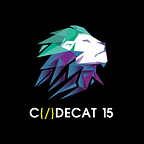Why would you rely on just one technology over the next 10–20 years of your career?
In 2009 when the recession was about to hit the job market I was on the verge of losing my job. I asked my boss am I getting fired. My boss asked me If I can upgrade to the iOS environment and learn how to make iOS apps.
I was a fresher who just knew C++ and ASP.NET, the company was not getting any new ASP.NET projects, and iOS was an alien term to me.
In my mind, I wanted to continue with ASP.NET, but I was nervous and not confident about making this technology jump.
Finally, after hesitation and wanting to keep my job, I said yes. Let’s take this risk and see how it goes was my gut feeling.
Once I crossed the learning curve and was more familiar with the terminologies of the iOS world, I found it easy to build iOS apps and now my resume had one new technology.
Changing programming language or tech stack can be tough and it can cause stress as there are many unknowns, but stay with me as in the next paragraph you’ll know why simply knowing one tech stack is not enough.
What I realized then was, knowing just one tech stack is not good enough if you want to survive the software industry demands. You must be flexible to adapt to change and learn new technology or any framework that would provide value to you and your company.
Cost to hire
The software industry has consistently been demanding and looks out for talent with various technology stacks, it sees such talent as a perk because they don’t have to go through the process of hiring someone new.
Hiring is a cost to the company because
✅ The company has to give advertisement for the new job.
✅ Work with third-party vendors.
✅ Lot of paperwork is involved.
✅ Initiate background checks.
✅ Salary negotiations, etc.
Hence, the company prefers developers with multiple technology stacks as a big reward. One does not have to be an expert in everything, but there should be a major and a minor.
Major & Minor Tech stack
Your major stack is that Programming language/Framework/ Tech stack in which you know everything and have worked extensively.
Your minor stack is that Programming language/Framework/ Tech stack that you do as a hobby or just for the love of technology.
Example: My major tech stack is ASP.NET, Azure & Angular and minor stack is iOS app development.
The main confusion for developers is where to start, and if they know where to start, the developer tries to learn everything in 30–40 days which is practically impossible if you are working 9–10 hours a day along with other personal responsibilities.
Deciding what to pick
When you are deciding to make a switch from your tech stack in which you have been working for many years, it can be difficult to make this choice and what to pick. The worst mistake you can make is
🙅 You pick a tech stack based on what your friend said to you, and assured a job in their company once you finished learning this tech stack.
I prefer to keep things simple, if you are an iOS developer who wants to learn a backend technology then you must explore the options for backend that you know and start learning it step by step.
See what works for you, it’s your journey and you are the captain of your ship.
Everybody has a preference just because I like ASP.NET I can suggest you ASP.NET but don’t start learning it just because I am saying so, you should also be looking for other options for backend like node or springboot, try few of them out before making a choice.
Have a plan
If you want to learn front-end, back-end, cloud, or any new technology, jumping recklessly without a plan on learning a new technology stack or anything in life is the biggest mistake a person can do.
You need to plan your schedule and make improvements as you go. It’s okay to miss a few days of learning but not weeks.
After you learn something new, make sure to test your knowledge and ability by developing a side project or doing certifications if you can. Do not be a hello world developer where you just print hello world in a new framework and add it to your resume.
Ask for advice
Everyone’s journey is different in the software industry, you can get inspiration from them but see what works for you and be open to accepting what’s not for you.
Don’t force yourself on becoming perfectionist, it’s a process and if you feel overwhelmed take a break from it.
Try to build your path and don’t be afraid to ask for advice from your seniors or from someone who has been in software industry long enough.
In my experience, asking for career advice has given me a better approach which has then guided me to make better decisions, it’s also important to whom you are taking guidance, and how thoughtful the person is.
Some developers have found comfort with just knowing one technical stack and after a few years, when they try to switch, because of the changing demands of the software industry it becomes hard for them, hence you must learn and keep yourself updated because opportunity can knock anytime.
Hope this post was helpful, please let me know in the comment section what worked for you or if any advice you can share.
